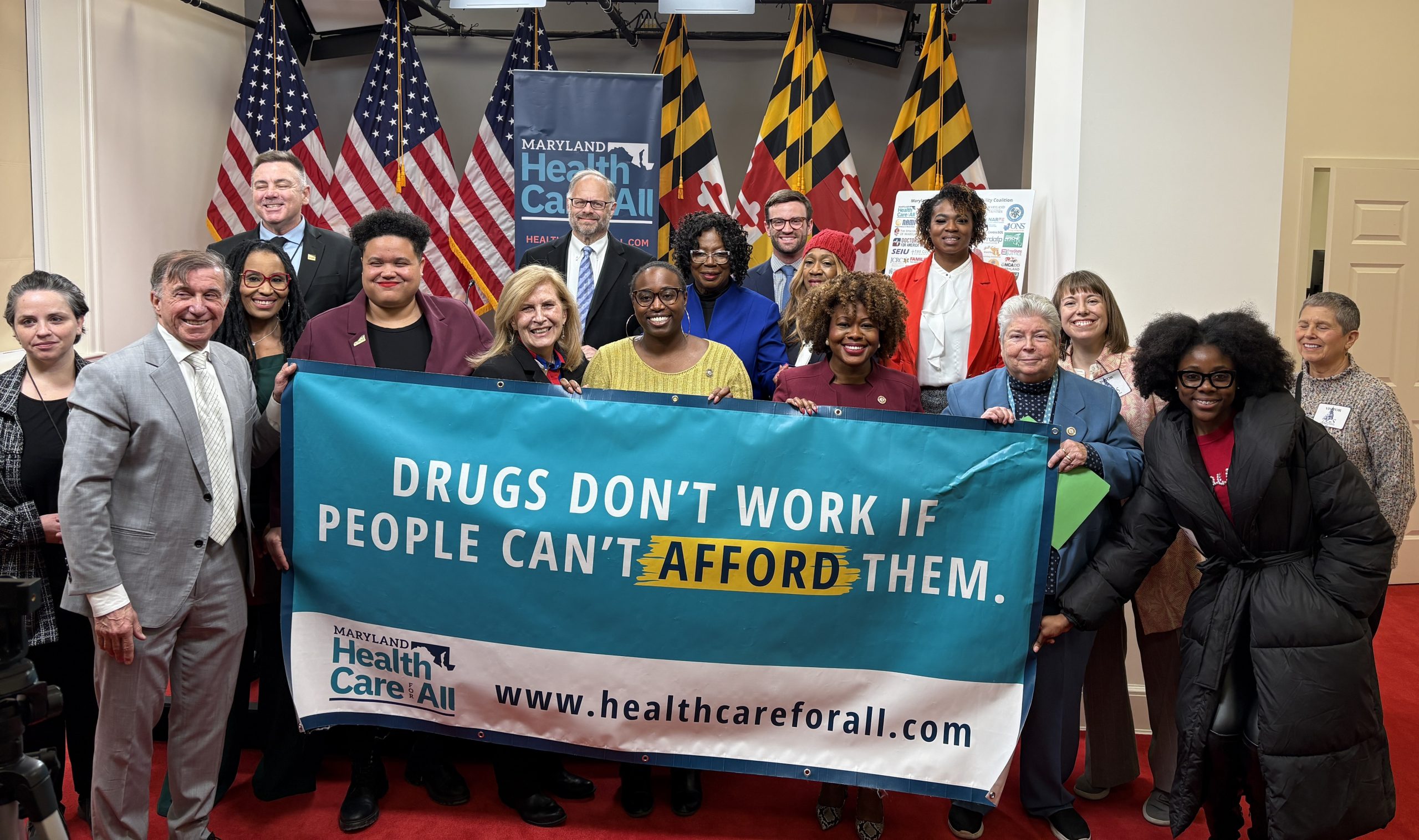Maryland Matters
September 18, 2018
Bruce DePuyt
Flanked by Maryland residents who’ve seen their prescription drug prices spike in recent years, gubernatorial hopeful Benjamin T. Jealous (D) on Monday released a drug affordability plan to increase competition and reduce costs to consumers.
“Marylanders desperately need relief from sky-rocketing prescription drug costs,” he said.
“From the Eastern Shore to Western Maryland, Marylanders live in terror caused by skyrocketing pharmaceutical costs.”
Earlier this year, the Kaiser Family Foundation’s Health Tracking Poll found that 52 percent of Americans say passing legislation to bring down the price of prescription drugs should be a “top priority” for President Trump and Congress. Three-quarters of those surveyed said that drug companies have too much influence in Washington, D.C.
Jealous’ plan would:
— require that drug companies give due notice when they intend to drastically raise their prices, a move undertaken by several Western states in recent years;
— create a Prescription Drug Affordability Board “that can determine the maximum cost of medication in Maryland”;
— impose a “drug spending cap for Medicaid” similar to a plan recently adopted by New York State; and
— allow for the “reimportation” of lower-cost prescription drugs from Canada, following a similar action recently taken by Vermont.
“We need a friend in the State House… to work with our Delegates and our Senators to get something done to reduce these prices,” said U.S. Rep. Elijah E. Cummings (D-Md.), who spoke at the candidate’s Baltimore news conference.
The Maryland Health Care for All! Coalition is holding a news conference in Baltimore Tuesday morning to announce a push to get candidates for state offices to commit to supporting legislation that would create a watchdog to monitor prescription drug prices.
In 2017, the General Assembly approved legislation giving the attorney general new power to go after generic drug manufacturers who significantly boosts costs on a handful of medication deemed “essential” by the World Health Organization.
The measure, written by Attorney General Brian E. Frosh (D), passed both chambers by veto-proof margins.
Gov. Lawrence J. Hogan (R) allowed the measure to become law without his signature, but he released a statement saying the bill “raises legal and constitutional concerns.”
The Association for Accessible Medicines, a Washington, D.C.-based lobbying group that represents generic and off-patent drug manufacturers, then sued to block the law from taking effect. The association said the legislation’s prohibition on “unconscionable” prices hikes was “vague.”
The AAM also said the law was a violation of the “dormant commerce clause” of the U.S. Constitution by “regulating drug prices outside of Maryland’s borders.”
The association’s challenge was rejected at the District Court level, but the AAM appealed to the conservative 4th Circuit Court of Appeals and prevailed.
Frosh told Maryland Matters on Monday that an appeal to the U.S. Supreme Court will be filed soon. He rejected the notion that the law is vague.
“We wrote a bill that said that if the price of a generic drug increased by an unconscionable amount — by an amount that shocked the conscience — that the AG’s office could come in and enjoin the price increase,” he said.
“The doctrine of unconscionability has been in American law for hundreds of years.”
Frosh also denied that the measure, believed to be the first of its kind in the nation, violated the “dormant commerce clause.”
“They misinterpreted our law in order to claim that it impacted prices and sales outside of Maryland, which it just flat out does not,” the attorney general said. “We don’t care what they’re charging anywhere else in the country. It makes no difference whatsoever.”
On Monday the Maryland Democratic Party released email correspondence, obtained through a public records request, between members of Hogan’s team and the association and its Annapolis lobbying firm.
The association’s president and CEO, Chester (Chip) Davis Jr., thanks the governor for the opportunity to meet on the issue, and urges him to veto the legislation, HB 631. The AAM also provided draft correspondence Hogan could send to presiding officers of the legislature and a draft press release explaining his action.
Hogan’s public statement contained the reservations the industry group expressed to him.
Amelia Chasse, the governor’s spokeswoman, said the first-term executive has signed “… five laws designed to increase transparency and responsibly control prescription medication costs, and he will continue to pursue ideas that meet these important goals.”
She said the issue requires action at the federal level “to produce the long-term changes that are needed.”
Scott Sloofman, communications director for Hogan’s re-election campaign, said, ”Under Mr. Jealous’ plan, you better hope you are not the last person in line needing life-saving drugs when his spending cap is hit. This is a fundamental flaw with Mr. Jealous’ entire health care plan which, aside from costing tens of billions of dollars and requiring massive tax increases, would lead to rationing of health care services.”
Frosh, meantime, expressed disappointment with Hogan, noting that the governor’s criticism of the 2017 anti-price gouging law resonated with the appeals panel.
“I was very disappointed that he wrote a letter critical of the bill that the pharmaceutical industry has used in court to support their argument that the bill is unconstitutional, and the court relied on it. The 4th circuit quoted Hogan’s letter. So yeah, it undermined our case.”
Last modified: September 18, 2018


